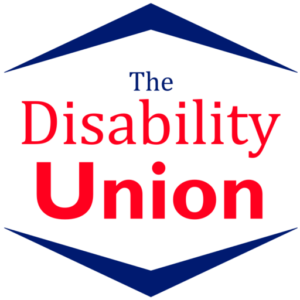
Being disabled is expensive. Between the expensive medical equipment, medications, doctors appointments, and PCA help, costs add up. In 2016, Scope published a study that detailed the added expense of being disabled. And to make matters worse, some disabilities can make it difficult for individuals to get and maintain employment. There are programs available to help with some of the costs, but it isn’t always enough. So what is a disabled person to do? Applying for grants, while time consuming, is your best bet in most cases. Luckily, we have some tips to help you get started. (Note: The links in this article are all UK-based)
What Do You Have Already?
First and foremost, you need to go over any current funding plans you have. What are your current benefits? Do you get an allowance for PCAs? Medical equipment? Lots of grants won’t accept you if you haven’t exhausted these current avenues first. Some organizations offer benefits calculators to more easily figure out how your current benefits work, or you could speak to someone from Citizens Advice Bureau for assistance. These benefits rarely go far enough for someone with a disability, but getting the most out of them is your first step.
What Do You Need Help With?
There are a wide range of things someone might need assistance with. Maybe your accessible vehicle broke down and you need a replacement. Maybe you need a ceiling lift in your home. Or maybe you need to refrigerate your medications and your fridge is going out. Having specific needs in mind when searching for grants helps when you go to apply. Usually, grants are for a very specific purpose, so having a clear idea of what you need can help save you time and energy.
Looking For Grants
Now comes the hard part: looking for the grants themselves. Luckily, with the internet, it’s become easier and easier to find them. Google is your best friend, but don’t overlook places like Facebook. If you’re in disability-related Facebook groups, someone there might know of a grant you’d be interested in. If you’re really lucky, maybe they’ve applied in the past and can help you with the application. This will take some time, so don’t wait until you’re in dire need of help. If you have some free time, I suggest doing a quick search whether you need it or not. You never know when an emergency pops up and you need quick help. Even if the grant you found originally is no longer available, the organization might have a different grant that can help.
Applying For Grants
Okay, so you’ve found a grant that you want to apply for. Great! Now you need to fill out the application. Generally speaking, this includes providing certain documentation, filling out half a dozen forms, and sometimes a letter to outline why you need the money. This is nothing short of daunting. The giver of the grant wants the money to go to the people who need it the most, so you need to prove that you need it. There are people you can reach out to that will assist in writing grant proposals, which I highly recommend finding. Additionally, go back to those Facebook groups. If you found the grant from someone who had already applied, ask them for advice. Writing grant proposals does get easier the more you do it, but it can be a lot in the beginning.
Additional Tips
There are a lot more tips that are simpler and therefore don’t warrant a whole paragraph, so I’ll bullet point those below:
- Ask your doctor or healthcare provider if they know of any funding sources. Especially if they’re a specialist.
- Are there any trade unions or organizations for professionals with disabilities? Turn2us is a good starting point for this.
- When looking for grants, pay special attention to who the grant is for. A grant to help someone get new hearing aids isn’t going to fund a new wheelchair, for example.
- Keep copies of all the grants you apply for. Sometimes you can apply multiple times, so it’s nice to be able to look back and see what you said last time.
- Sometimes you get denied because someone else needed the money more. That’s okay, reapply later.
And that’s the basics on grants! Have you ever applied for additional assistance? What tips can you give to people who may be starting out?


